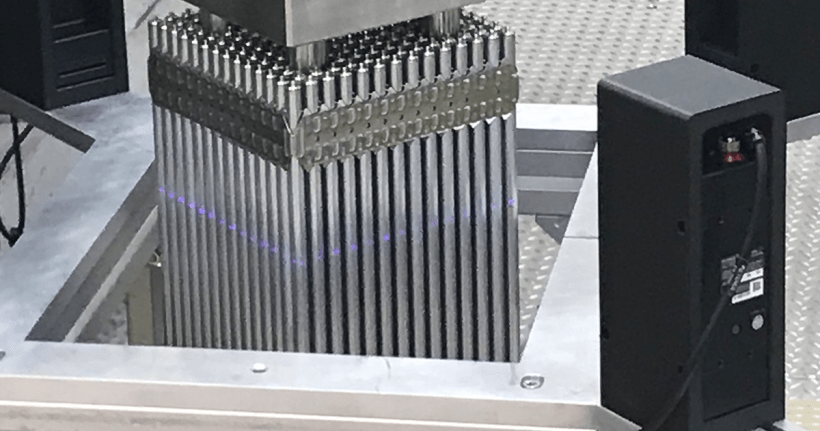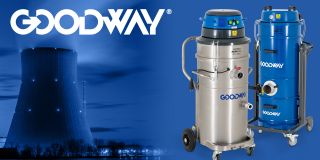Framatome’s PROtect accident tolerant fuel assembly undergoes final inspection before delivery to Exelon’s Calvert Cliffs-2 in Lusby, Md.
The nuclear industry’s first 100 percent accident tolerant fuel assembly is in operation at Exelon Generation’s Calvert Cliffs plant, the Department of Energy announced yesterday. The advanced fuel will operate in the reactor for the next four to six years and will be routinely inspected to monitor its performance, the DOE said.
Located in Lusby, Md., Calvert Cliffs houses two pressurized water reactors. Unit 1 is rated at 907 Mwe, and Unit 2 at 881 Mwe.
Irradiated lead test rods are delivered to Oak Ridge National Laboratory for examination. (Photo: ORNL)
Several lead test rods of Westinghouse’s EnCore accident tolerant fuel recently arrived at Oak Ridge National Laboratory for post-irradiation examination over the next year in support of the Nuclear Regulatory Commission’s licensing process. The rods were installed in 2019 in Exelon’s Byron-2, a 1,158-MWe pressurized water reactor, and were removed in fall 2020 and prepared for shipment to ORNL.
A photo of a prototype Lightbridge fuel assembly. (Photo: Lightbridge)
Operators at the Advanced Test Reactor at Idaho National Laboratory have begun a nine-month outage to perform a core internals changeout. When the ATR is restarted in early 2022, the top head closure plate of the pressurized water test reactor will have new access points that could permit the irradiation of more fuel and material samples in the reactor’s high-flux neutron conditions.
Some of the ATF lead test rods supplied by Global Nuclear Fuel have been removed from the reactor for evaluation.
The lead test rods for the world’s first installed accident tolerant fuel (ATF) have completed a full cycle at Unit 1 of the Hatch nuclear power plant in Baxley, Ga. Southern Nuclear Operating Company operates the two-unit plant.
During a planned spring 2020 maintenance and refueling outage at Unit 1, operators transferred a sampling of the lead test rods from the reactor to the spent fuel pool. An initial inspection of the fuel in comparison to standard zirconium rods has been completed.





